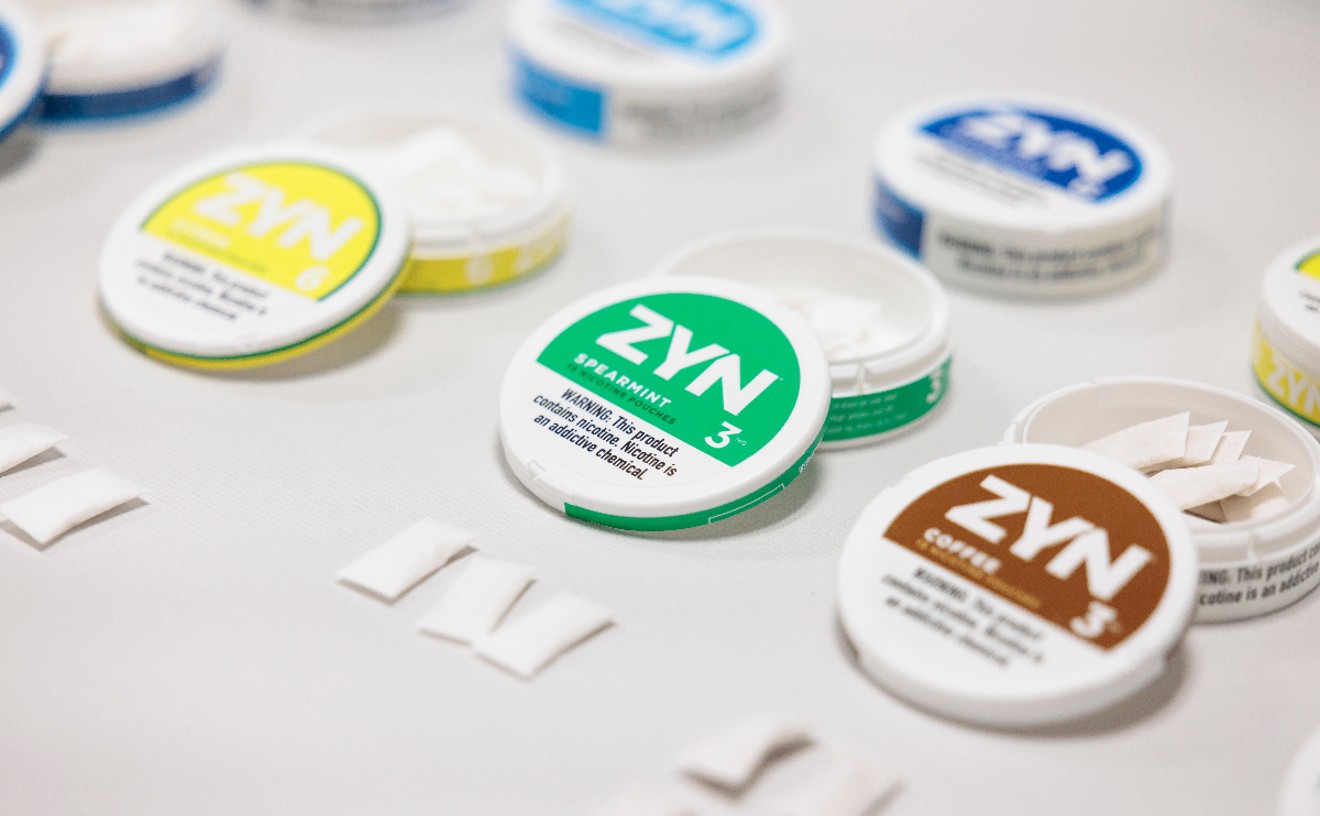Many Colorado students found themselves in academic limbo after the Trump administration issued new guidelines on remote learning for foreign students.
"I’ve poured four years of my life into doing my Ph.D., and it’s not something I can finish remotely," says Tanya Roussy, a 34-year-old physics graduate student at the University of Colorado Boulder. On July 6, Immigration and Customs Enforcement notified foreigners pursuing their education in this country on student visas that they won't be able to stay in the United States if their classes move fully online in the fall; Roussy is worried that she may be required to return to her home country of Canada.
During the COVID-19 pandemic, ICE had created temporary exemptions for foreign students so that they could take more online courses than normally allowed under federal statutes and still maintain their legal status; the exemptions were extended through the spring and summer semesters.
But according to the July 6 announcement, those exemptions will soon end. "Active students currently in the United States enrolled in such programs must depart the country or take other measures, such as transferring to a school with in-person instruction to remain in lawful status," according to ICE. "If not, they may face immigration consequences including, but not limited to, the initiation of removal proceedings."
The State Department won't be issuing visas to students abroad who are enrolled in programs in this country that are going fully online for the fall semester, ICE notes. Customs and Border Protection will also refuse entry to any of these students.
"This is just an increasingly desperate president and administration writing new pages in their xenophobic playbook," says Arash Jahanian, the director of policy and civil-rights litigation at the Meyer Law Office. "What potential justification is there, other than just cruelty toward and complete lack of disregard of the well-being of immigrants?"
Not only will foreign students enrolled at universities that are switching to online-only classes be sent home or prevented from entering the U.S. for the foreseeable future, but non-immigrant foreign students attending schools with all in-person classes will be allowed to take a maximum of one online course from another institution each semester. At schools with a mix of in-person and online teaching, non-immigrant foreign students will be able to take more than just one course online, but not all courses online. However, those exemptions don't apply to non-immigrant foreign students in English-language training programs or those in vocational programs, "who are not permitted to enroll in any online courses," according to ICE.
"It definitely feels like they are trying to force us between protecting our health and getting deported, which is not great," says Roussy.
While Harvard and MIT have already filed suit to stop the new ICE rules from taking effect, schools in Colorado are scrambling to determine what these guidelines mean for their foreign students.
Metropolitan State University of Denver is currently reviewing ICE's new policies. "While our university mission is primarily to serve Colorado’s students, we do expect to have about 160 international students enrolled this fall, most of whom are planning to take all their classes online. We have reached out directly to our international students today to let them know that they’re a valued part of our campus community and that we’ll be sharing more with them as we work through the guidance," says Matt Watson, a spokesperson for the university, where international students account for under 1 percent of the overall student population.
Community College of Denver has a much larger percentage of international students— about 7 percent of the total enrollment. "It seems like we just don’t have an answer yet," says Christa Saracco, a spokesperson for the college, who adds that lawyers with the Colorado Community College System are going through the guidelines right now.
The four campuses of the University of Colorado are planning to reopen with a "hybrid of in-person classes augmented by some remote learning," according to a statement from CU's president and the four campus chancellors. "We look forward to welcoming our international students back to our campuses. They enrich our campus communities and enhance the diversity of the educational experience for all our students. We are working with our partner higher education associations and institutions to ensure that our international students can continue their educational journeys."
But although the CU system is pushing to keep international students enrolled, some may feel uncomfortable attending classes in person during the ongoing pandemic. Others may be interested in courses that are only offered online. And accommodating them will be a challenge, CU acknowledges.
"International students in F-1 [visa] status within the United States are not permitted to take a full online course of study. If students find themselves in this situation, they will need to leave the country, consult with an immigration attorney about changing nonimmigrant status or other options, or contact International Student and Scholar Services to determine if ISSS can authorize them for a reduced (or no) course load," reads a statement on CU Boulder's website.
Schools are limited in what they can actually do to protect students who are losing their legal status under these new guidelines, according to Joshua Mitson, an immigration lawyer at Meyer Law Group. "Without the school offering enough in-person credits, there is no grace period in which the student can leave if the student’s visa status is terminated. They have to leave immediately, or they risk accruing unlawful presence," Mitson says. "Frankly, the option is incredibly limited, and even if they were to return to their home country to study, you have to take into account things like time difference and ability to have access to professors and lecturers while studying."
Philip Luck, an economics professor at the University of Colorado Denver, a school with a little under 1,000 international students, believes the problems go even further. Some students who won't be allowed in the U.S. could have issues with Internet access and censorship, and won't be able to connect with peers, he notes.
"It’s not as though you can just say, 'Oh, well. Students weren’t going to be able to be on campus anyway, so what’s the point of being here anyway?' There’s a huge value added of them being in the States if that’s the better environment for them to be learning in," Luck says.
He and other CU Denver faculty members are brainstorming how they can create in-person independent studies programs for some students, to ensure that they're able to remain in the U.S. and complete their education despite what he calls a "horrible" and "needless" new policy.
"As far as I can tell," Luck concludes, "they just want universities to open back up, and this is a way to force it."
[
{
"name": "Air - MediumRectangle - Inline Content - Mobile Display Size",
"component": "12017618",
"insertPoint": "2",
"requiredCountToDisplay": "2",
"watchElement": ".fdn-content-body",
"astAdList": [
{
"adType": "rectangle",
"displayTargets": "mobile"
}
]
},{
"name": "Editor Picks",
"component": "17242653",
"insertPoint": "4",
"requiredCountToDisplay": "1",
"watchElement": ".fdn-content-body",
"astAdList": [
{
"adType": "rectangle",
"displayTargets": "desktop|tablet"
},{
"adType": "rectangle",
"displayTargets": "desktop|tablet|mobile"
}
]
},{
"name": "Inline Links",
"component": "18838239",
"insertPoint": "8th",
"startingPoint": 8,
"requiredCountToDisplay": "7",
"maxInsertions": 25
},{
"name": "Air - MediumRectangle - Combo - Inline Content",
"component": "17261320",
"insertPoint": "8th",
"startingPoint": 8,
"requiredCountToDisplay": "7",
"maxInsertions": 25,
"watchElement": ".fdn-content-body",
"astAdList": [
{
"adType": "rectangle",
"displayTargets": "desktop|tablet"
},{
"adType": "rectangle",
"displayTargets": "desktop|tablet|mobile"
}
]
},{
"name": "Inline Links",
"component": "18838239",
"insertPoint": "8th",
"startingPoint": 12,
"requiredCountToDisplay": "11",
"maxInsertions": 25
},{
"name": "Air - Leaderboard Tower - Combo - Inline Content",
"component": "17261321",
"insertPoint": "8th",
"startingPoint": 12,
"requiredCountToDisplay": "11",
"maxInsertions": 25,
"watchElement": ".fdn-content-body",
"astAdList": [
{
"adType": "leaderboardInlineContent",
"displayTargets": "desktop|tablet"
},{
"adType": "tower",
"displayTargets": "mobile"
}
]
}
]












